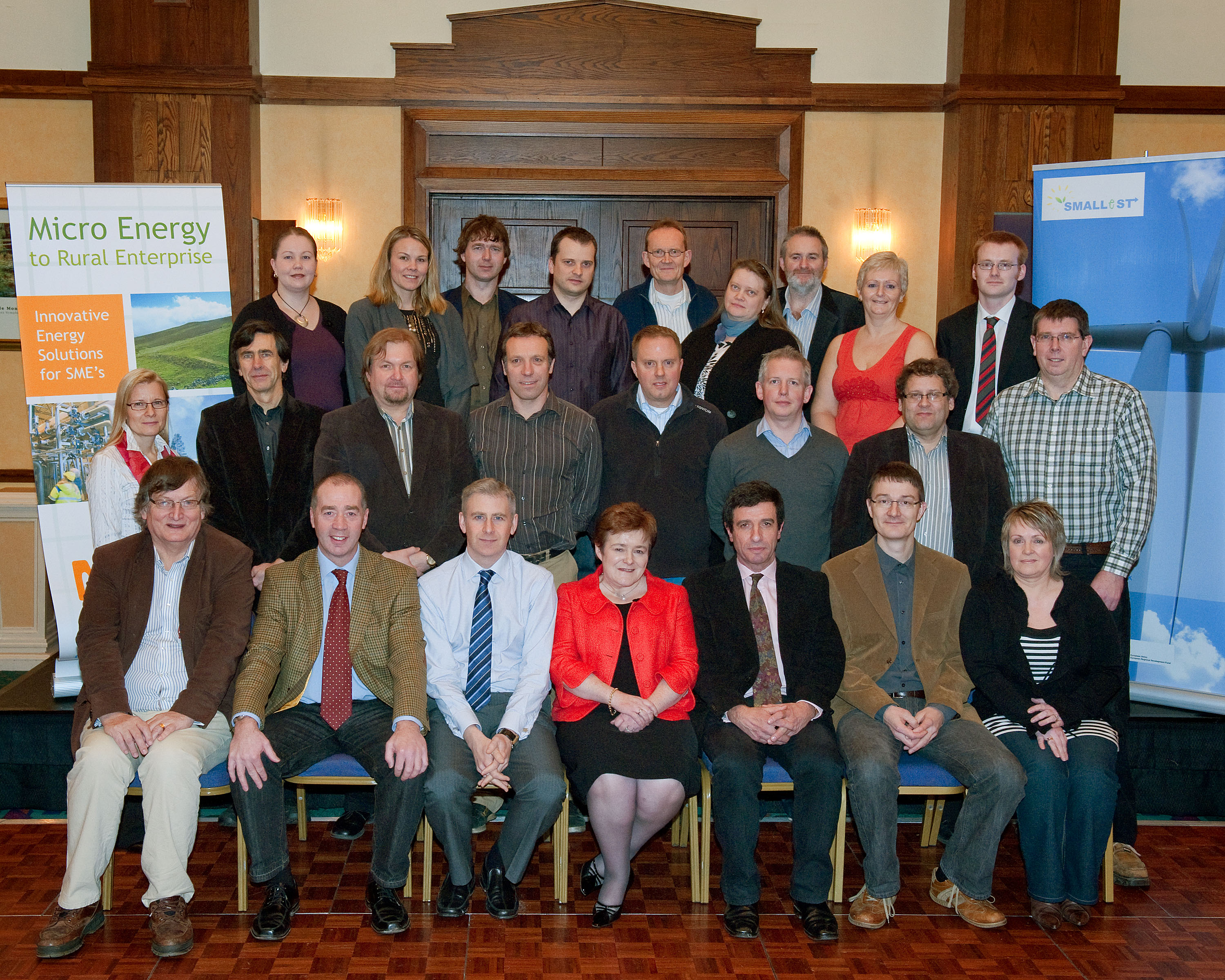| |
"Energetic" start for MicrE project
MicrE project, which
was started in January 2009, has proceeded with firm steps
during the autumn of 2009. A project meeting was organised in
in Oulu in September, which gathered all the project partners
together, all the way from the British Isles, and from
adjacent areas, from Umeĺ and Joensuu. The implementation plan
of the project was discussed during these meetings, but the
visit to Oulu provided an opportunity for the guests to get
acquintated with the energy reseacrh carried out at the
University of Oulu
University of Oulu is
in charge of a one of the work package of this 3-year long
project. The aim of this work package is to study the
suitability of different energy producing technologies for the
SME's operating in rural areas. Such technologies are sought,
which can be used by the rural SME's to transform the waste
streams into energy. A comprehensive study about the different
energy production technologies has been completed, and the
experimental part of the work package has began. In these
laboratory experiments, which are carried out in the
laboratories of the process and environmental technology, the
suitability of these technologies for SME's is put into test.
These experiments will continue until the end of 2010.
 |
A combined project meeting of the
MicrE and SMALLEST projects was organised in Limavady in
Northern Ireland during January 2010. The meeting agreed
on deepening the cooperation between the two projects by
setting up a new common technology team. Eva Pongrácz
and Auli Turkki were also there on behalf of NorTech
Oulu and University of Oulu.
|
Which of the different energy production technologies can be
used in SME's, which are located in sparsely populated rural
areas? Which can be implemented on small scale, which are
also financially feasible? The laboratory studies will
provide answers for these questions, and the results of the
experiments will be disseminated to rural enterprises
throughout the whole programme area of the Northern
Periphery Programme. With this inforamtion the rural SME's
can make decisions on how to transform waste problems into
energy solutions.
Back to the main page of the
project
News archive
|
|
